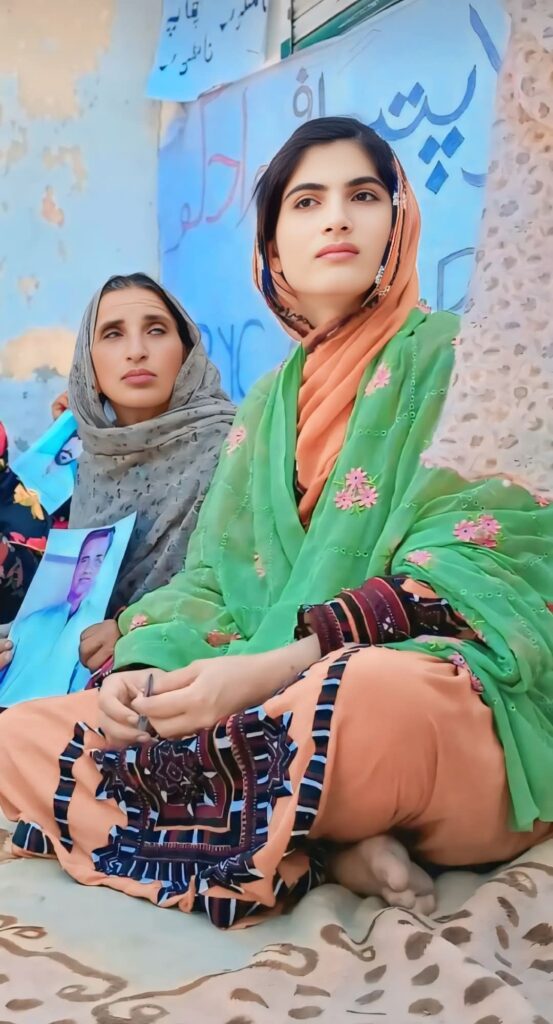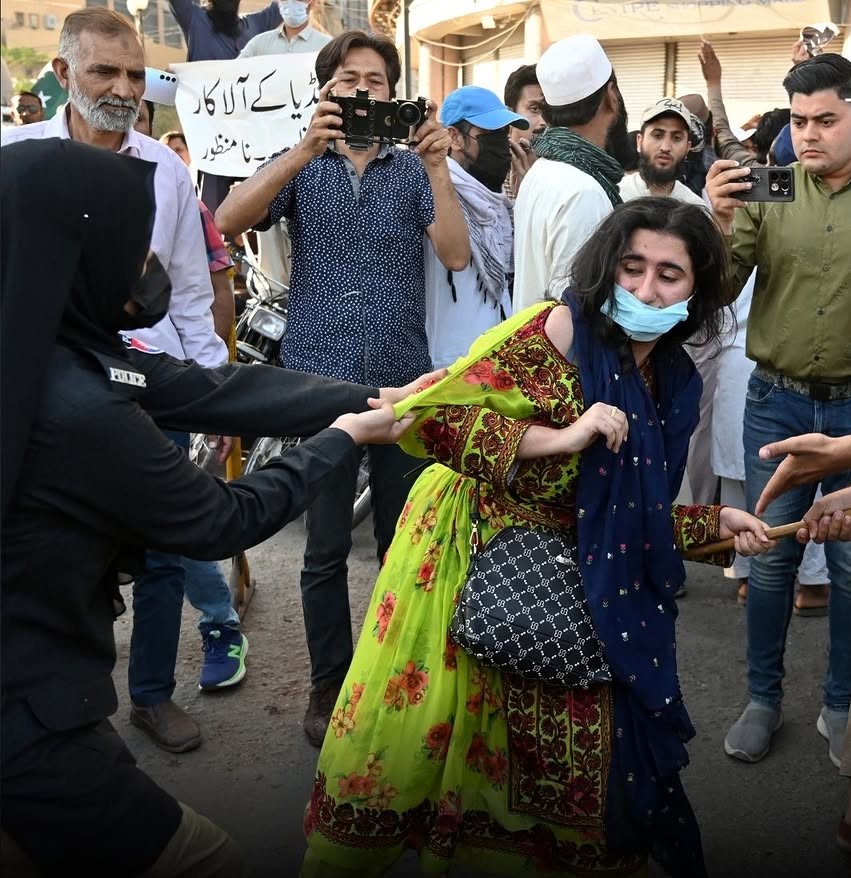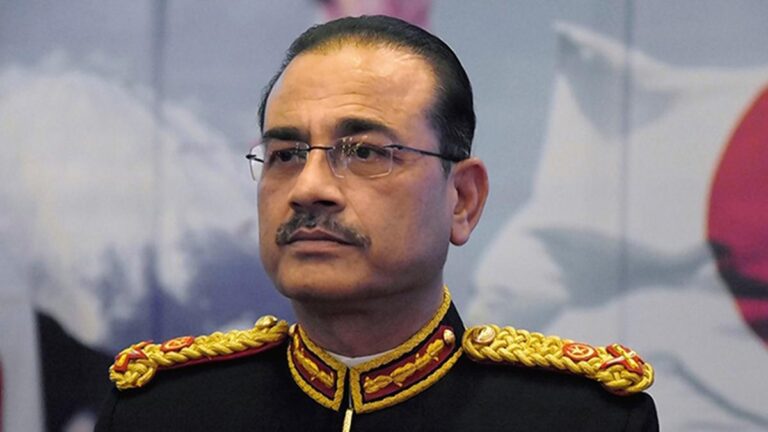Pakistan Detains Baloch Activist Dr.Sammi Deen Baloch for 30 Days Amid Crackdown on Protests
In a controversial move, the government of Pakistan’s Sindh province has ordered the 30-day detention of prominent Baloch rights activist Dr.Sammi Deen Baloch along with four others. The detention order, issued on Tuesday, follows their arrest during a protest in Karachi against the ongoing enforced disappearances in Balochistan. The move has sparked widespread condemnation from human rights organizations, political activists, and international watchdogs.
Click Here To Follow Our WhatsApp Channel
Arrest and Detention Order
Sammi Deen Baloch, a key leader of the Baloch Yakjehti Committee (BYC), was among several protesters arrested by Karachi police on Monday evening. The BYC had staged a demonstration outside the Karachi Press Club against the earlier arrests of their leader, Dr. Mahrang Baloch, and other members in Quetta.
Although a judicial magistrate ordered their release, the Sindh government responded swiftly by issuing a 30-day detention order under the Maintenance of Public Order (MPO) ordinance. The Sindh Home Department justified the decision, stating that their presence in public could pose a “grave threat” to safety and lead to unrest.
“The Government of Sindh, on the basis of request and considering the merits of the case, is satisfied that there is a serious apprehension of public safety. The presence of the above persons at any public place is likely to pose a grave threat to public safety and cause a breach of peace and tranquility,” read the official order.
As per the notification, Baloch and her fellow detainees – Razzak Ali, Abdul Wahab Baloch, Shehdad Abdul, and Sultan Aamal – have been placed under the custody of Karachi Central Prison. Under the MPO ordinance, authorities have the power to extend their detention for up to six months without a formal trial.
Crackdown on Baloch Protests
The arrests are part of an escalating crackdown on the BYC and other groups that have been protesting against enforced disappearances in Balochistan. The issue has been a long-standing human rights concern, with many activists alleging that Pakistan’s security forces are behind the disappearances.
Last week, during a similar protest in Quetta, police violently dispersed demonstrators, leading to clashes that resulted in the deaths of three people. Both police and protesters have blamed each other for the casualties. The crackdown has further fueled tensions in Balochistan, where security forces are frequently accused of extrajudicial killings and abductions of activists, students, and journalists.
The BYC, founded in 2020, has organized multiple large-scale protests and marches, demanding an end to state-led oppression in Balochistan. Their demonstrations have increasingly gained national and international attention, putting Pakistan’s government under pressure to address the allegations of human rights abuses.
Historical Context: Enforced Disappearances in Balochistan
Balochistan has been plagued by enforced disappearances for decades. Families of the missing claim that men are often taken by security forces, held for years without trial, or found dead under suspicious circumstances. Pakistan’s military and intelligence agencies deny involvement, insisting that they are only targeting Baloch separatists and insurgents.
The province, which is rich in natural resources, has long been home to an armed Baloch separatist movement. Various insurgent groups have been fighting for greater autonomy and control over Balochistan’s resources, while Pakistan’s government has heavily militarized the region to suppress separatist activities. In recent months, these insurgents have intensified attacks on security forces and Chinese nationals, who are working on China-Pakistan Economic Corridor (CPEC) projects, particularly the Gwadar port.
International and Domestic Outrage
Human rights organizations, opposition parties, and international watchdogs have strongly condemned the detention of Sammi Deen Baloch and other activists. Groups like Amnesty International and Human Rights Watch have frequently criticized Pakistan’s handling of Baloch activism, calling for an end to enforced disappearances and arbitrary detentions.
On social media, activists and opposition leaders have labeled the arrests as “state-sponsored oppression” and demanded the immediate release of the detained individuals. Prominent Pakistani opposition figures have accused the government of trying to silence voices demanding justice.

Pakistan’s Response
Pakistan’s military and security officials maintain that most so-called disappeared persons have links to separatist movements and terrorist activities. Authorities have denied allegations of running a systematic campaign of enforced disappearances, instead arguing that such narratives are fueled by anti-state elements.
Military spokespersons have previously accused groups like the Baloch Yakjehti Committee of being terrorist proxies, claiming that foreign-funded organizations exploit human rights issues to destabilize Pakistan.

What Comes Next?
The detention of Sammi Deen Baloch is expected to intensify protests in both Balochistan and Karachi. Activists fear that this latest crackdown signals a harsher stance by the government against pro-Baloch movements.
Meanwhile, international pressure is mounting on Pakistan to address the grievances of the Baloch people and ensure that activists are not arbitrarily detained for advocating human rights.
As protests continue and calls for justice grow louder, it remains to be seen how the Pakistani government will respond—whether it will attempt to negotiate with activists or further escalate the crackdown on dissent.
You Might Also Like:
Dia Mirza: A Journey of Success, Impact, and Environmental Advocacy
Security Forces Deploy UAVs in J&K’s Kathua Amid Anti-Terror Operations
FIR Filed Against Comedian Kunal Kamra Over Remarks on Maharashtra Deputy CM




